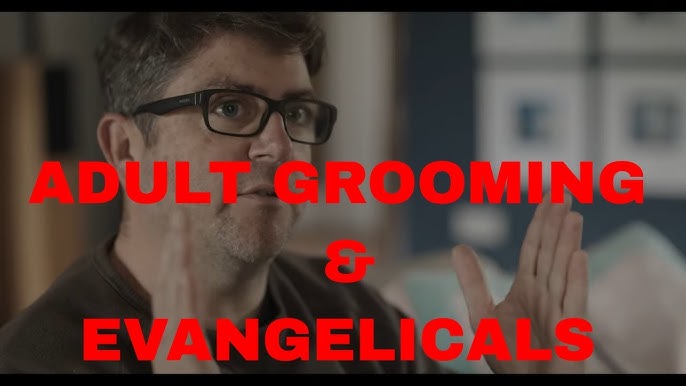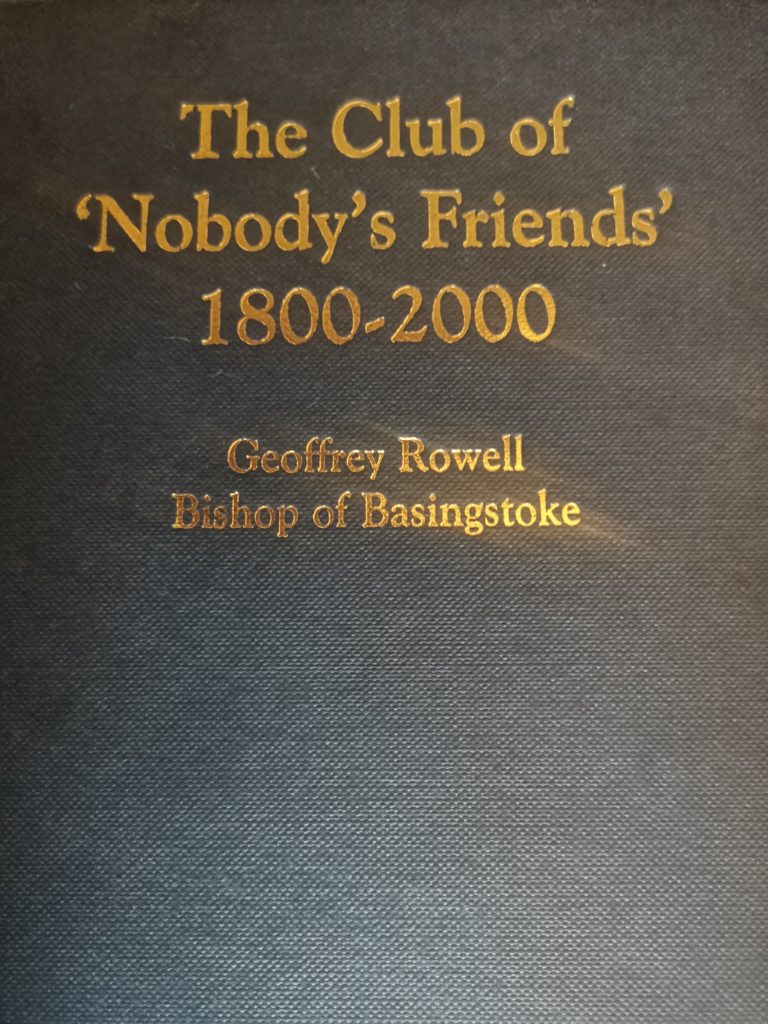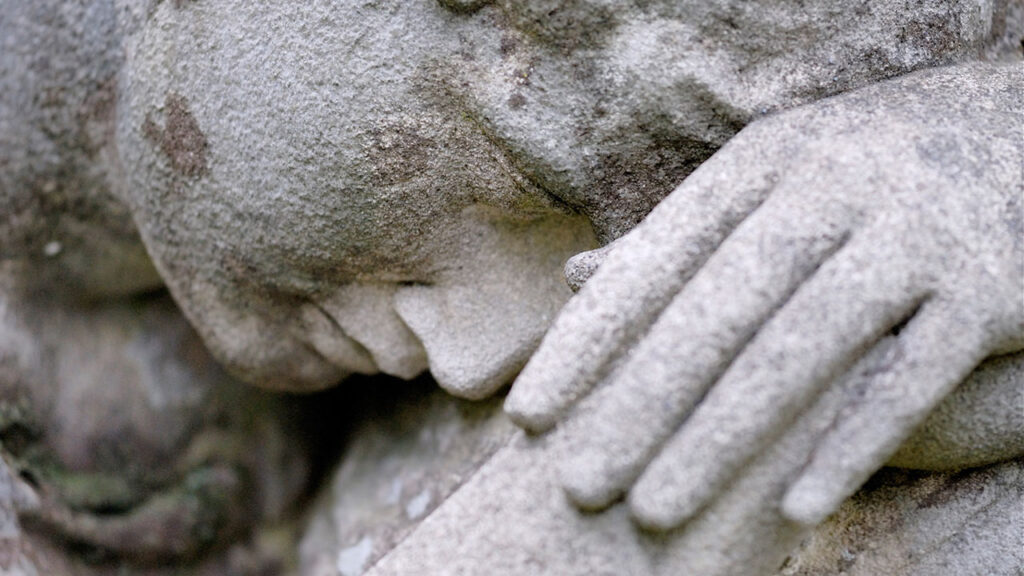Martin Sewell & Stephen Trott

Martin writes: Members of the General Synod are not the only legislators taking an interest in the issue of Church of England Safeguarding Reform together with the issues of bad governance that inevitably lie cheek by jowl with it
Bad governance, bad safeguarding practice, and a patrician culture of omertà amongst the leadership was bound to result in a collapse of trust in the Established Church once the scandal got out, and so it has proved. The long delayed Makin Review, has proved only the slow burning fuse and once published, a chain reaction of anger began.
Investigative reporter Cathy Newman had know about the story for a long time but need the full facts before providing the oxygen of publicity necessary for the explosion of anger to begin; the Church of England has behaved precisely like the “Post Office at Prayer” for a decade and Cathy Newman’s journalism has provided the counterpart narrative to the docs drama “ Mr Bates vs the Post Office”
On the last edition of the BBC Radio 4 Sunday programme the Conservative Parliamentary lead for Safeguarding, Ms Alicia Kearns called for a Royal Commission into the safeguarding scandals and this follows a significant number of Members of Parliament expressing anger towards the Church leadership during the January session questions to the new Second Estates Commissioner Marsha de Cordova who was necessarily diplomatic but plainly sympathetic to their concerns.
Ms Kearns, the MP for Rutland and Stamford, had plainly been well briefed and as I listened, I recognised the cogent arguments of a one time Synod colleague and safeguarding stalwart Revd Stephen Trott and so it transpired.
Stephen Trott “ knows his stuff”. He had been a member of the 2003 Revision Committee of the 2003 CDM Measure and had identified that the Bishops had conveniently contrived to exclude themselves from its jurisdiction. One suspects the the although that commission was corrected, Revd Trott began to realise the nature of the problem from that experience.
He plainly understands his subject; he was a member of General Synod 1995-2021, where he has served on the Legal Advisory Commission, and the Legislative Committee.
The current crisis has provided him with the opportunity to adjust and share his paper, which he did via Ms Kearns whom he he had encountered in the course of his Ministry.
This has since been shared with other MPs of all parties, and, just as we found with the Post Office, they are coming together on a cross party basis to address historic wrongs. Whether it is about empathy for the victims or antipathy to the privileged position of the Established Church matters little. As Alan Bennet once wrote “ the sky is black with chickens coming home to roost”
Readers can read the short paper here. In many ways what happens in the chaos of the February Synod is not the most significant aspect of the next few days; what will count is what Parliament and the media make of what they see.
Safeguarding failure by the National Institutions of the Church of England
Proposal for the establishment of a Royal Commission
to reform the governance of the Church of England
1 Safeguarding failures in the Church of England
There have been many and widely publicised safeguarding failures by the authorities of the Church of England, at diocesan and at national level, with many survivors whose experience and needs have not been addressed, who have been denied due process, acknowledgement, justice and compensation for their situation.
It has taken some twenty years for dioceses to develop safeguarding programmes and training for the clergy, mostly acting in isolation from each other to devise systems for teaching safeguarding and for implementing it at a diocesan level. Many safeguarding officers are former members of the police with specific training in disclosure and barring, and in management of CSA cases. The situation at diocesan level is significantly improved, with case reviews of all clergy undertaken to ensure that those with safeguarding issues are identified and managed. The lack of a national syllabus, training programme or qualifications remains however a gap in the implementation of safeguarding nationally, not least because clergy move from diocese to diocese, or are asked to officiate in other dioceses.
At national level the Archbishops’ Council, created in 1998 as a top tier for the constitution of the Church of England above the General Synod, has failed quickly enough to develop national policy, or to respond to survivors, or to hand over national safeguarding to a body independent of the Church of England. In recent years there has been an evolving series of safeguarding authorities created by the Council, but all have proved ineffective to deal with the situation, as old and new cases of abuse of children and vulnerable adults have emerged and have been largely ignored. Its current proposals for “independent” safeguarding do not offer genuine independence.
The Clergy Discipline Measure of 2003 imposes a limit of twelve months for complaints to be made against members of the clergy. An exception to this can be made by the President of the Tribunals, but this discretion has not always been exercised as it should be. Many historic cases have come to light, some dating back decades, some more recent, but complainants have been denied justice. It is the nature of safeguarding that survivors frequently do not come forward until many years after they have suffered abuse.
Many of these survivors have been asking their bishops for support, to intervene, or even to reply to letters which have been ignored in some cases for more than a decade. Many bishops, including Justin Welby, have declined to meet with survivors.
The Report of the Independent Inquiry into Child Sexual Abuse, chaired by Professor Alexis Jay, published in 2022, examined in detail the issue of safeguarding in the Church of England and other churches. The report called for the creation of a fully independent body to oversee safeguarding practices within religious organizations. The inquiry highlighted systemic failures in the Church of England and the Roman Catholic Church, including prioritizing the reputation of the church over the welfare of children. It found evidence of poor responses to allegations, insufficient support for survivors, and inconsistent safeguarding practices.
The Archbishops and their Council have consistently sought to avoid the transfer of oversight of safeguarding to an fully independent body by means of creating its own solutions to deal with these matters, but this has not produced a viable alternative to an independent body.
Redress has been promised to survivors, but it is endlessly delayed, and the amounts of compensation wholly unsatisfactory in the light of the suffering which survivors have undergone. Most have not received anything, and many continue to be ignored by their bishops and by the Council.
The John Smyth Review, published as the Makin Report in November 2024, after some six years of delays, finally exposed the existence of the widest and longest running system of abuse in the Church of England, dating back at least to the 1970s and involving several hundred victims in England and in South Africa and Zimbabwe, at the hands of John Smyth QC, an Evangelical barrister supported by a network connected to the Iwerne Trust.
One of those who worked for the Trust at its camps was Justin Welby, who claims not to have been aware of the abuse taking place as a young man, and consistently refused to engage with survivors of the abuse carried out by Smyth.
The Makin Report shows that from 2013 onwards Welby must have been aware of the allegations being made, but neither he nor his staff and other bishops made a concerted effort to close down Smyth’s activities, by now residing in South Africa in order to avoid scrutiny in the UK. Smyth was enabled to continue multiple abuses until his death in 2018, before he could be extradited back to the UK to face questioning. His victims in the UK have in many cases been denied any meeting with either Archbishop Welby or with other officers of the Archbishops’ Council, until very recently.
2 Unaccountability of bishops and archbishops and of the Archbishops’ Council
At the root of the problem is the obsolete constitution of the Church of England and the almost complete absence of accountability for its leaders or its National Institutions, especially the Archbishops’ Council, created by Archbishop George Carey in 1998 as a superstructure to the General Synod. Although the Church of England remains part of the law of England, access to redress is largely limited to expensive attempts at judicial review. There is no body to supervise the Church or to reform it. It is exempt from Freedom of Information legislation. The House of Bishops meets in private and does not publish full minutes of its proceedings.
The office of a bishop or archbishop is largely as it was left by Henry VIII, some of whose legislation in several areas remains active on the statute book, such as the Appointment of Bishops Act of 1533. Today, however, the Crown plays no role in supervising the bishops. The office of prime minister has absorbed the powers and most of the prerogatives of the Crown including hose relating to the Established Church. Prime ministers appointed the bishops and archbishops until this role was handed over by Gordon Brown to the Church itself in 2007. The House of Bishops has as a consequence become a self-replicating body, with most new appointments coming from a pool of candidates chosen and promoted by the Archbishops.
In 1919 Parliament created the first devolved government – the Church Assembly, known since 1970 as the General Synod of the Church of England. Apart from the Ecclesiastical Committee of Parliament, which scrutinises church legislation known as Measures, the General Synod is not governed by or practically accountable to Parliament. Questions are asked by MPs which are answered by the Second Church Estates Commissioner, who relies on staff at Church House to provide research and answers. There is no mechanism by which MPs can act in response.
The problem was compounded in 1998 with the National Institutions Measure, which created the Archbishops’ Council as a new top tier of church government, as a corporate body in its own right, removing from the General Synod its vital role of self-government, and placing uncertain powers in the hands of a partly elected, partly appointed Council controlled by the Archbishops. Its functions include the management of Synodical government, whose agenda it controls, and it has taken increasing powers for itself by means of a series of Measures and Statutory Instruments. It is currently proposing the formation of a new system of governance in which power passes into the hands of a new body over which the Archbishops will have even more influence and control. There is no meaningful accountability to Parliament, or in practice to the General Synod, which is historically and legally the devolved governing body of the Church of England.
Doubts were raised in 1998 as to the purpose and role of the new Archbishops’ Council. It is because of the confusion of roles between the Council and the Synod and the assumption of power by the Council that the failure of the Church of England’s leaders to address safeguarding effectively has taken place, continuing to sideline Professor Jay’s recommendation of a completely independent safeguarding body, and perpetually postponing any real redress or even acknowledgement for survivors. The absence of accountability is the striking root cause of the national safeguarding failure, and of other significant issues as well.
Although Parliament could in principle exercise its sovereignty over the Church, by repealing the 1919 legislation, or that of 1969 which created General Synod, convention ensures that it will not do so. Again, the European Convention on Human Rights now protects religious bodies from intervention by the State of the kind which might have occurred before 1919. It would not be appropriate for what is now a secular Parliament directly to supervise the Church of England, although the Church remains Established in law as the national church and in possession of the historic endowments and property which it received on trust at the Reformation.
3 Reforming the current governance of the Church of England
The situation in the Church of England with regard to safeguarding, and to the rights of all its members nationwide who look to General Synod as its governing body, is now intolerable, and a means must be found to ensure transparency, genuine and effective accountability, and respect for the rights of church members which are being diminished by the acquisition of absolute power by those at the centre. There is one mechanism which can be deployed, however. As the Established Church, its canon law explicitly acknowledges that it remains subject to the Royal Supremacy.
Canon A7 Of the Royal Supremacy
We acknowledge that the King’s excellent Majesty, acting according to the laws of the realm, is the highest power under God in this kingdom, and has supreme authority over all persons in all cause, as well ecclesiastical as civil.
It is well within the bounds of constitutional propriety for a Royal Commission to be set up to inquire into the abuses of power in the Church of England, its failure to respond to the gravest safeguarding issues and to the recommendations made by IICSA, and the almost complete lack of
accountability either by its bishops in the exercise of their office, or by the National Institutions of the Church, especially the Archbishops’ Council.
There is precedent for setting up such a Royal Commission. From 1904-1906 a Royal Commission on Ecclesiastical Discipline heard evidence from many witnesses, and in its Report recommended modernisation of the restrictive laws controlling public worship. This ultimately led to the devolution by Parliament to the Church Assembly of powers of self-government in 1919 via the
Church of England Assembly (Powers) Act, while retaining the right to examine and to reject any Measure passed by the Church Assembly, or later the General Synod, which would negatively affect the constitutional rights of all the King’s subjects.
A new Royal Commission would be able to take evidence, examine the ways in which the present arrangements are failing, and propose legislative change by Act of Parliament, in order to bring the current governance of the Church into line with the best practice of the 21st century, for the sake of all church members and of all citizens of this country.
Safeguarding is the presenting issue. It will not be resolved, as other issues will not be resolved, while the Church’s authorities remain unaccountable to anyone. Bishops must be made into constitutional rather than absolute monarchs, and elected publicly, not in secret. Control and government of the national institutions must be returned to the General Synod itself, whose Houses of Clergy and Laity are elected to represent the parishes and people who maintain the Church’s presence for the benefit of everyone in England. We have been here before.
The creation of the Ecclesiastical Commissioners in 1836 was designed to deliver extensive reform to a Church which had become fossilised and subject to many abuses. The Established Church of today urgently needs full accountability, transparency, and reform of its outdated government and appointments. The means to this end is the continuing authority of the Crown, in history, in its functions, and in canon law, to appointing a Royal Commission on Church Governance to deliver the radical changes which are needed.
Stephen Trott








